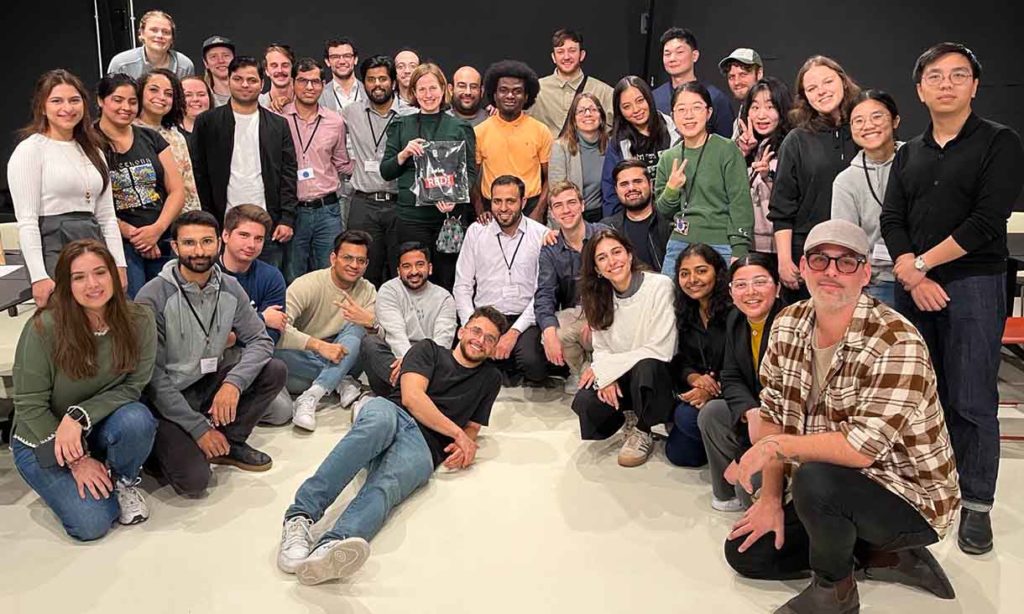Forward
In November 2023, the first REDI Annual Symposium took place in Barcelona.
The RMIT European Doctoral Innovators program (REDI) is a unique PhD training program to prepare the leaders of tomorrow.
REDI offers excellent conditions including international experience, top-class research discipline and transversal skills training as well as networking with academic and industry leaders from 60+ supporting partners.
Each of our 42 Marie Skłodowska-Curie Actions (MSCA) fellows has at least one supervisor at RMIT University in Melbourne and another at their European host institution.
Our event was the first time many of the REDI fellows and supervisors met in person, during a week of knowledge sharing, relationship building and skill development.
MSCA fellows had the opportunity to get to know each other, present their research, work with their supervisors, interact with RMIT’s School of Graduate Research (SGR) and participate in different transferrable skills training workshops and social activities.
Supervisors came from all over Europe and Australia, with an added opportunity to do some networking and brainstorm on possible research collaboration opportunities.
Held in Barcelona from 27 November to 1 December 2023, the event was co-organised by RMIT Europe and RMIT’s School of Graduate Research (SGR).
This newsletter offers a look back at our first in person event, which will signpost what we hope to achieve in the future.
REDI symposium: the data
Event recap
Day 1 (27 November 2023)
Ice-breaker
Following the opening and venue information, a short ice-breaker was organised by RMIT’s School of Graduate Research, where participants had the chance to present themselves and get to know each other.
Attendees could write about themselves on a piece of paper before folding it into a plane and throwing it across the room. Then they picked up someone else’s paper airplane and set off to find the author.
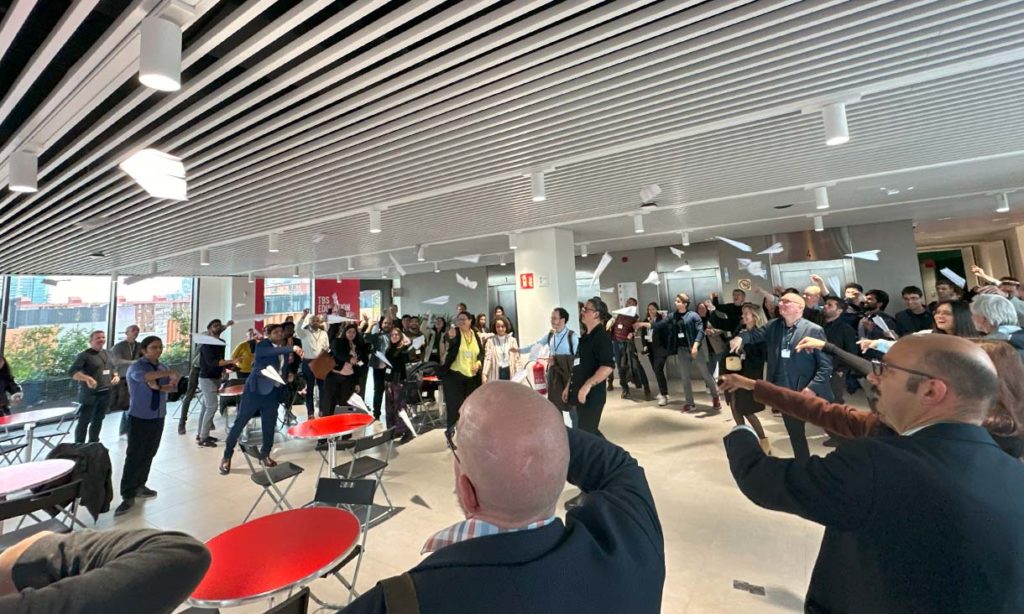
Research project presentations
This session allowed the REDI fellows to present their research projects in five minutes – three minutes for presentation and two minutes for questions from the audience.
Three parallel sessions moderated by SGR, host and RMIT supervisors provided an opportunity for other fellows and supervisors to get familiar with their peers’ research projects and ask questions.
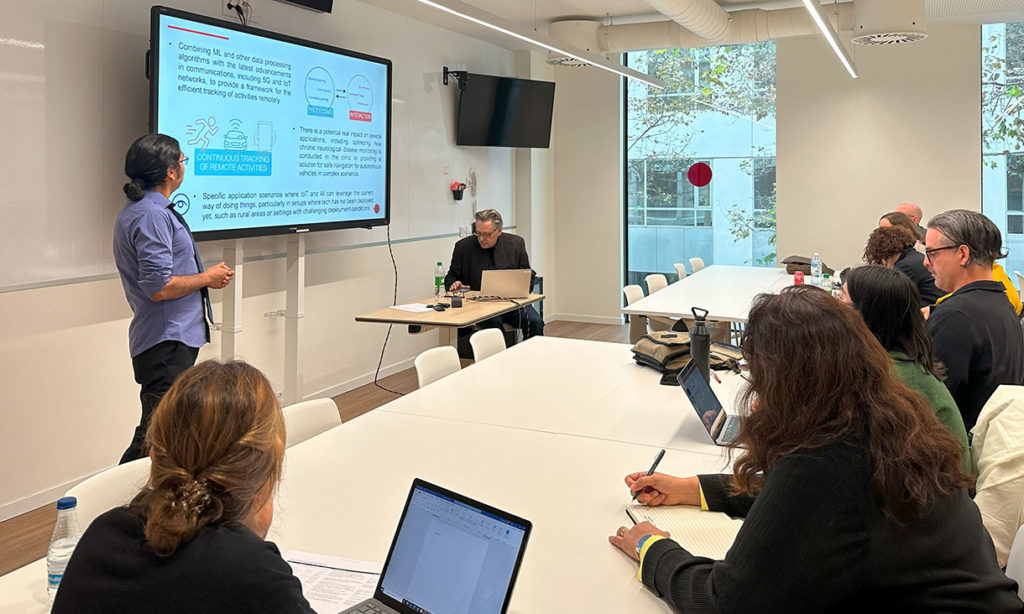
Self-management and resilience workshop
In the afternoon, the fellows were given an opportunity to engage in thoughtful discussions and share insights with each other on key concepts such as leadership, self-management and resilience.
This session provided a platform for them to reflect on their personal growth, share their experiences and learn from each other. It was a valuable exercise in fostering personal development and enhancing their understanding of these crucial aspects of professional growth.
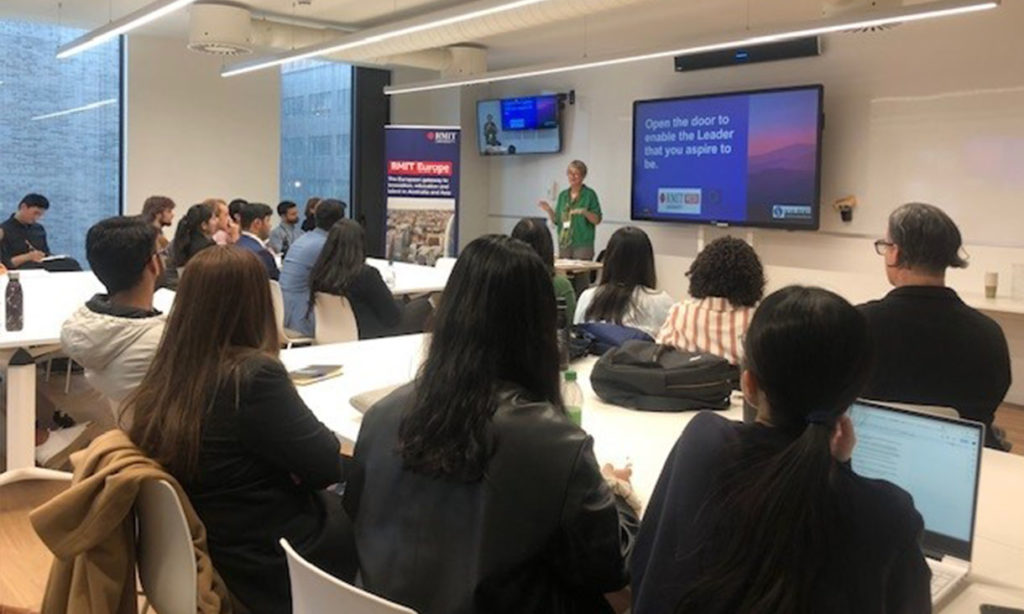
EU funding opportunities brainstorming and matchmaking for supervisors
RMIT Europe held a session for supervisors to facilitate possible new collaboration opportunities among the institutions participating in the REDI Program.
At the workshop, different EU funding opportunities were discussed focussing mainly on Erasmus+ and Horizon Europe funding. It is planned for future editions to potentially involve fellows who are more advanced in their research.
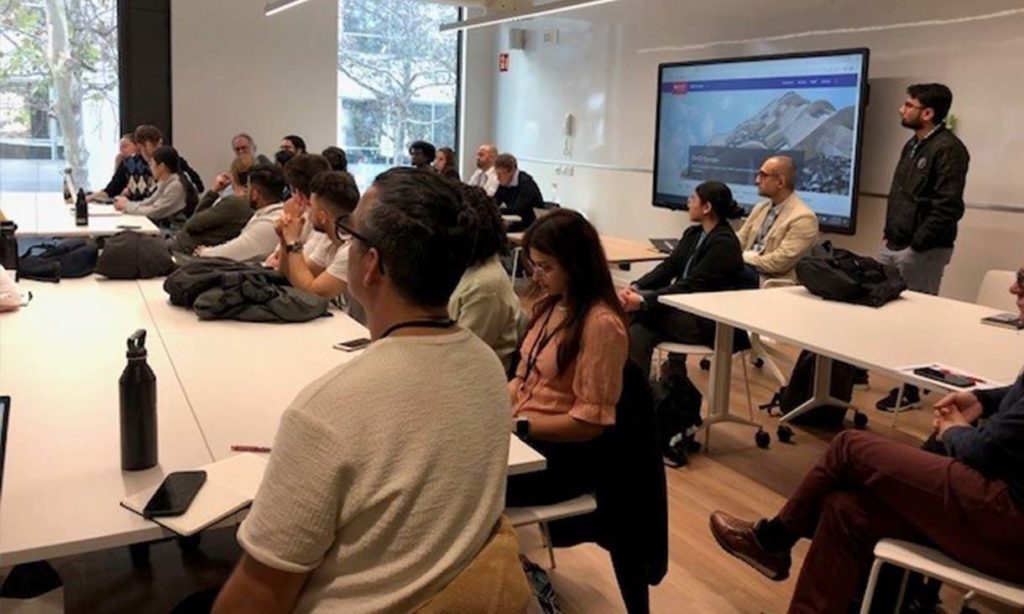
Day 2 (28 November 2023)
Using AI for research roundtable discussion
This session, facilitated by Associate Professor Robyn Barnacle and featuring speakers Associate Professor Julie Porteous, Professor Jesus Cerquides and Professor Marta Poblet, explored the potential benefits and limitations of Artificial Intelligence (AI) and Generative AI (GAI) for researchers.
The discussion centred around two main questions: how researchers can use AI and GAI in their research, and how they can use these tools responsibly, accountably, and transparently.
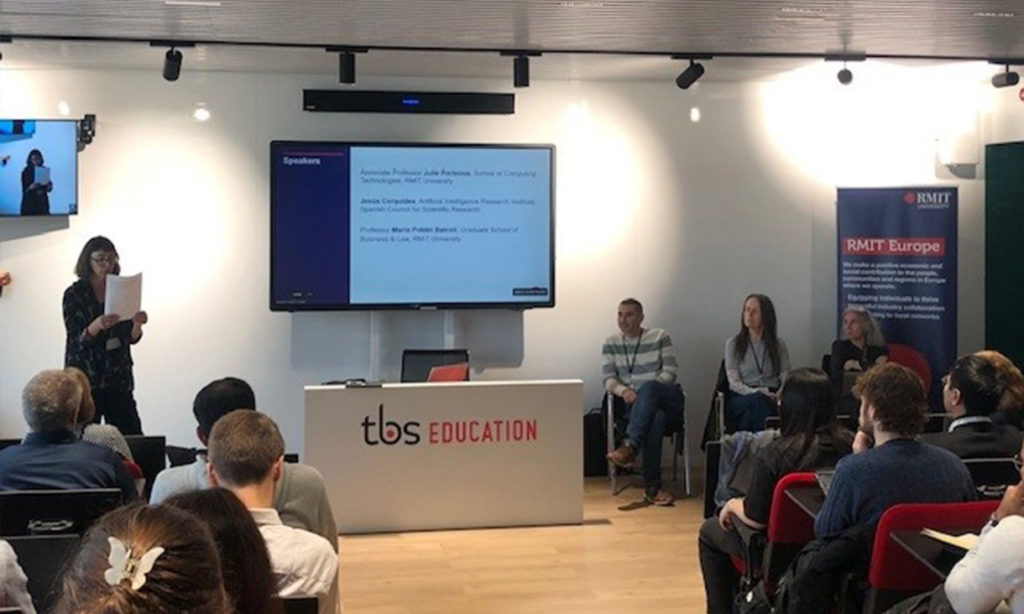
Maximising the global and industry engaged PhD experience
RMIT’s School of Graduate Research (SGR) facilitated a working session for MSCA fellows and their supervisors to discuss the benefits, opportunities and challenges of REDI’s cotutelle and collaborative PhD arrangements.
The session allowed fellows and supervisors to discuss the unique aspects and challenges of a dual PhD degree, such as liaising with multiple institutions and meeting different expectations and requirements. The second half of the session was dedicated to a joint discussion mainly around navigating across institutions and their requirements, and supervision. The session was led by Associate Professor Robyn Barnacle (SGR) and included interventions from three RMIT supervisors: Professor Anne-Laure Mention, Professor Suzie Attiwill, and Distinguished Professor Arnan Mitchell.
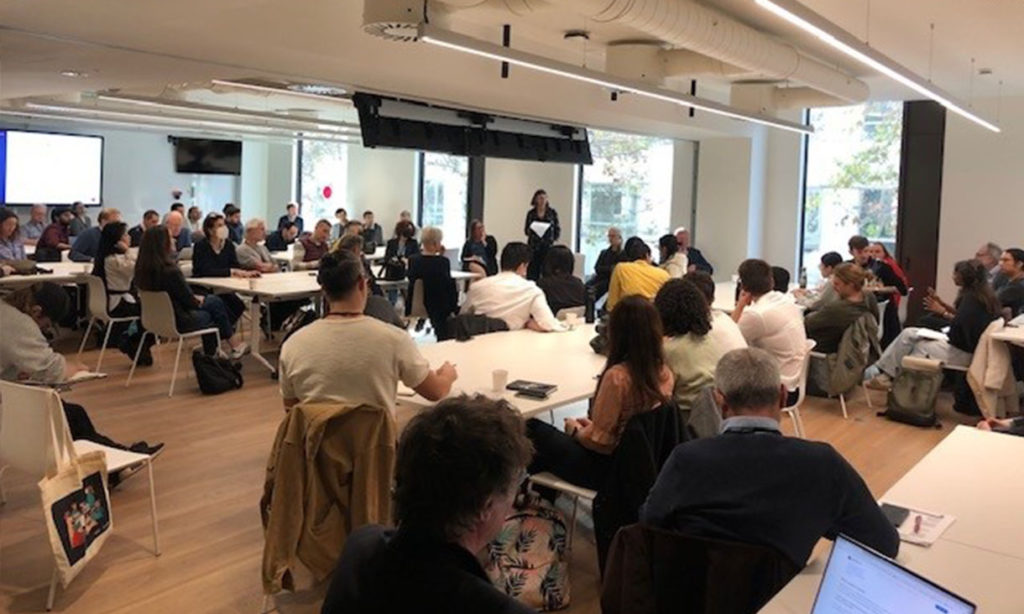
Market opportunity navigator workshop
The workshop was designed to foster a commercialisation mindset among REDI fellows. The goal was to enhance their ability to facilitate collaborations between the university and industry, maximise the impact and return on research investments and promote the sustainability of long-term research.
This workshop was part of a broader effort to equip researchers with the skills and knowledge necessary to navigate the commercial aspects of their work effectively.
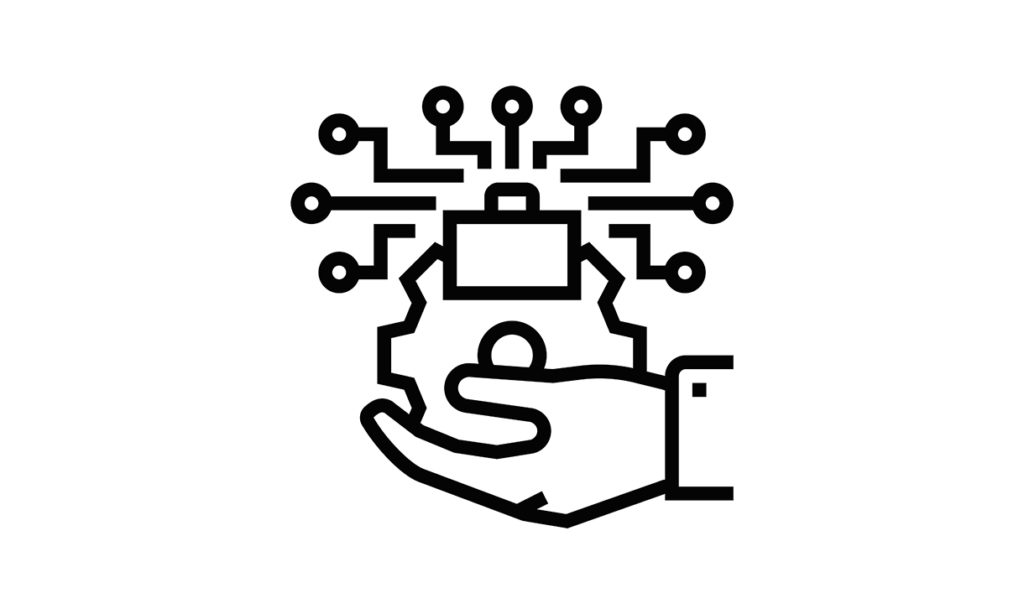
Day 3 (29 November 2023)
Meeting with the European Commission
This morning’s session was devoted to enhancing transferable skills and conducting a mid-term meeting with the European Commission.
During this meeting, several fellows who have made significant progress in their research had the opportunity to showcase their projects. This provided a platform for them to share their work, receive feedback, and engage in valuable discussions about their research.
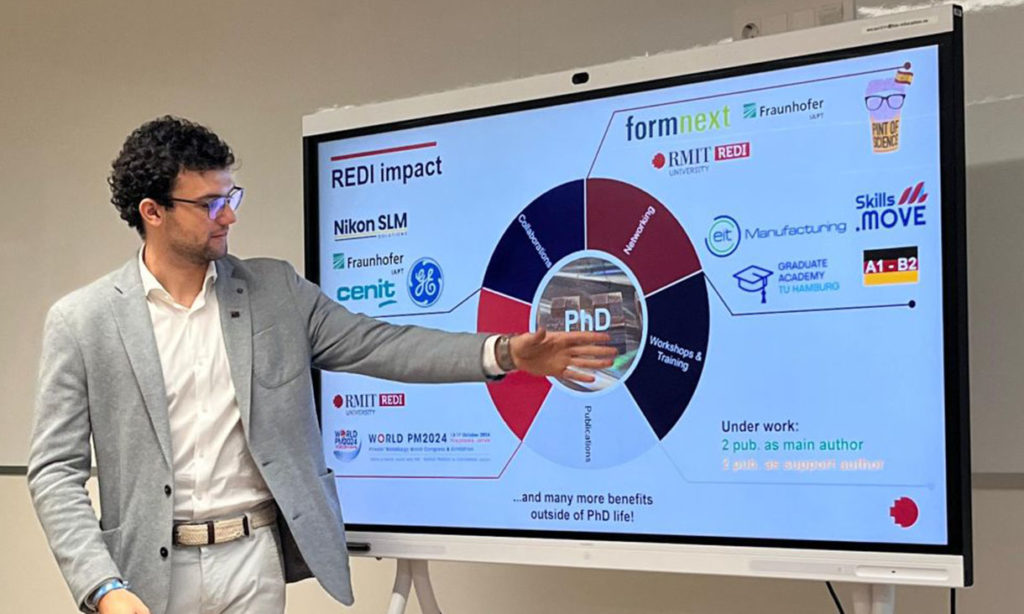
Cultural excursion
In the afternoon, the group embarked on a cultural excursion to Barcelona’s iconic La Sagrada Familia.
This visit not only offered an enriching cultural experience but also provided the fellows with an opportunity to learn about RMIT’s historical connection to the basilica. The University had previously contributed to the basilica’s spatial designs, highlighting the intersection of academia and culture.
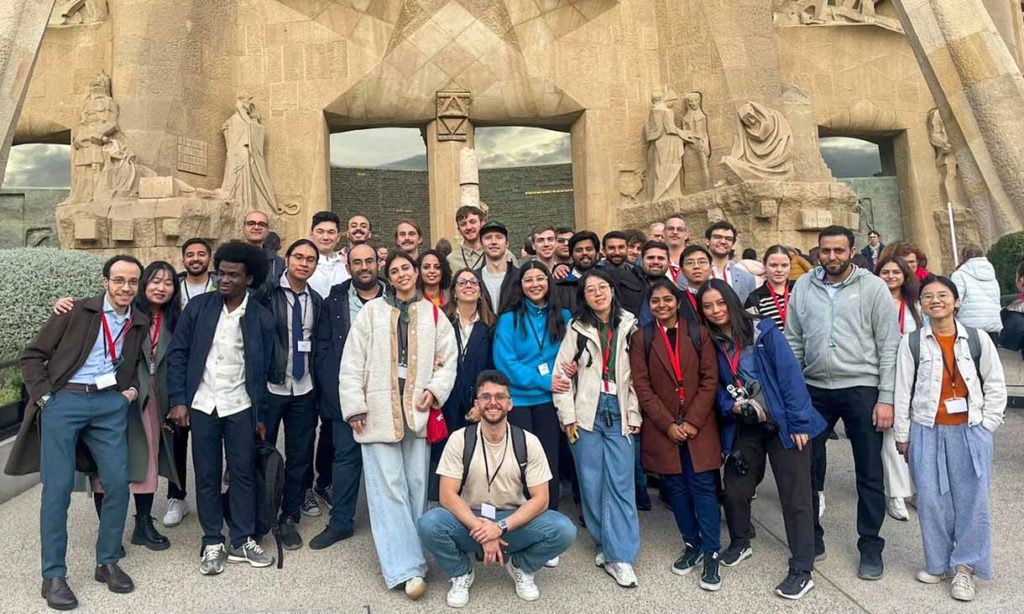
Pint of Science
In the evening, six REDI fellows had the unique opportunity to share their research with the public in a relaxed, informal environment.
The REDI science talks, organised in collaboration with Pint of Science, were held simultaneously in two local pubs. At each venue, three fellows presented their research, engaging the audience on a range of topics including artificial intelligence, indigenous knowledge exchange, architecture and urban planning, and materials science.
This event provided a platform for the fellows to communicate their work to a broader audience, fostering a dialogue between academia and the community.
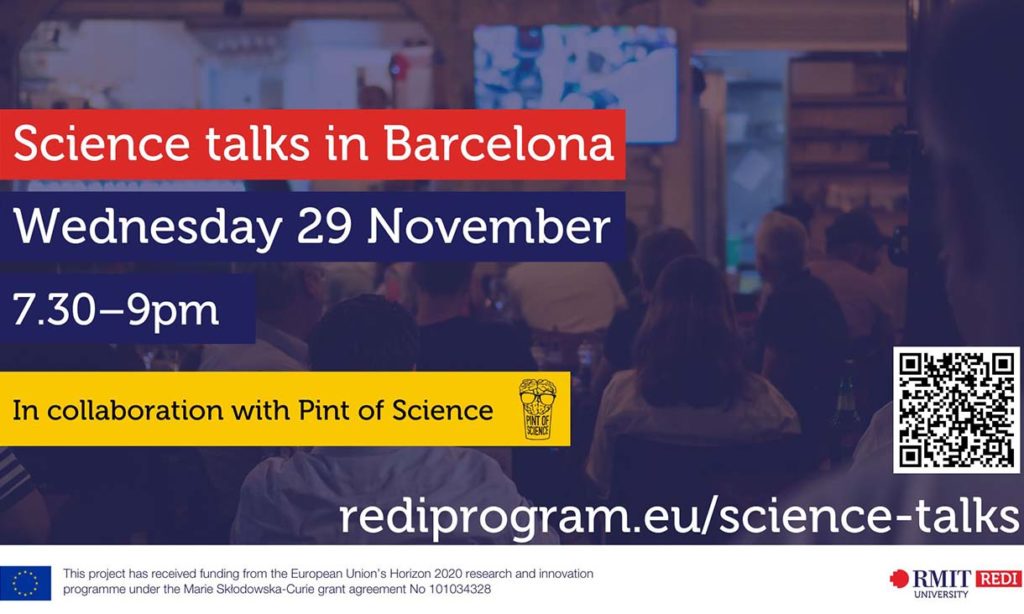
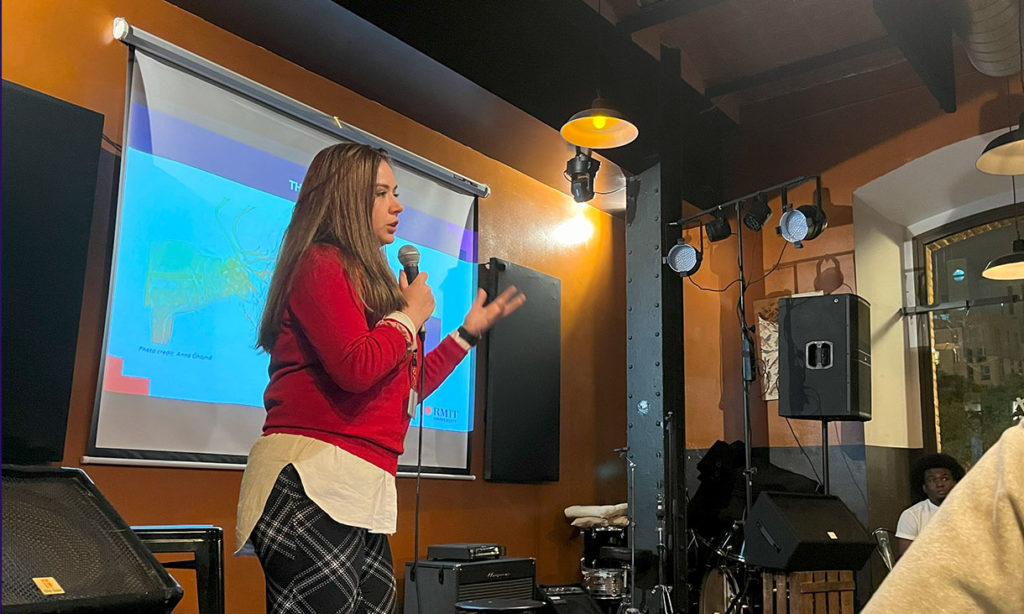
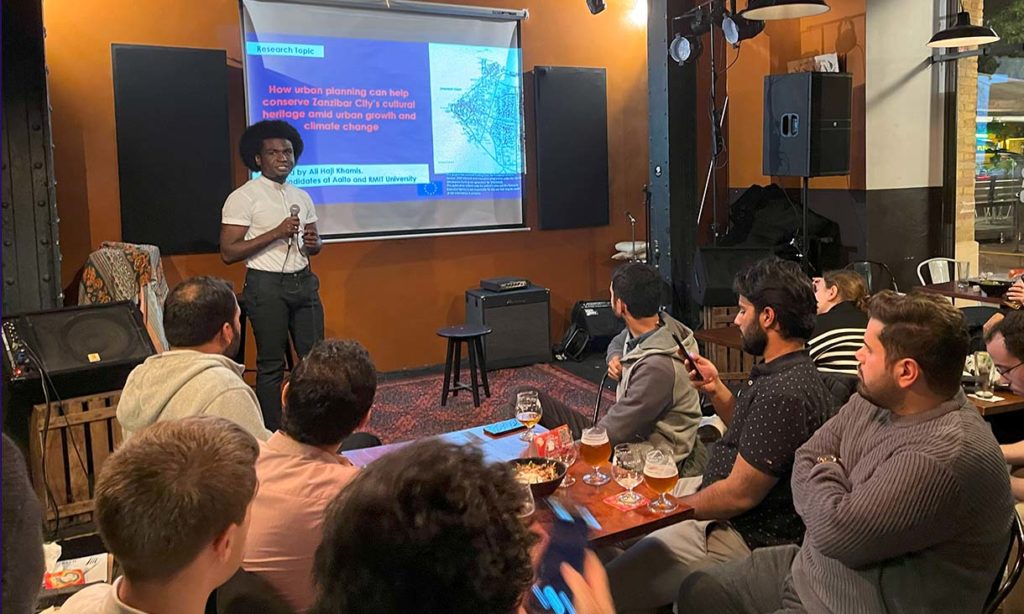
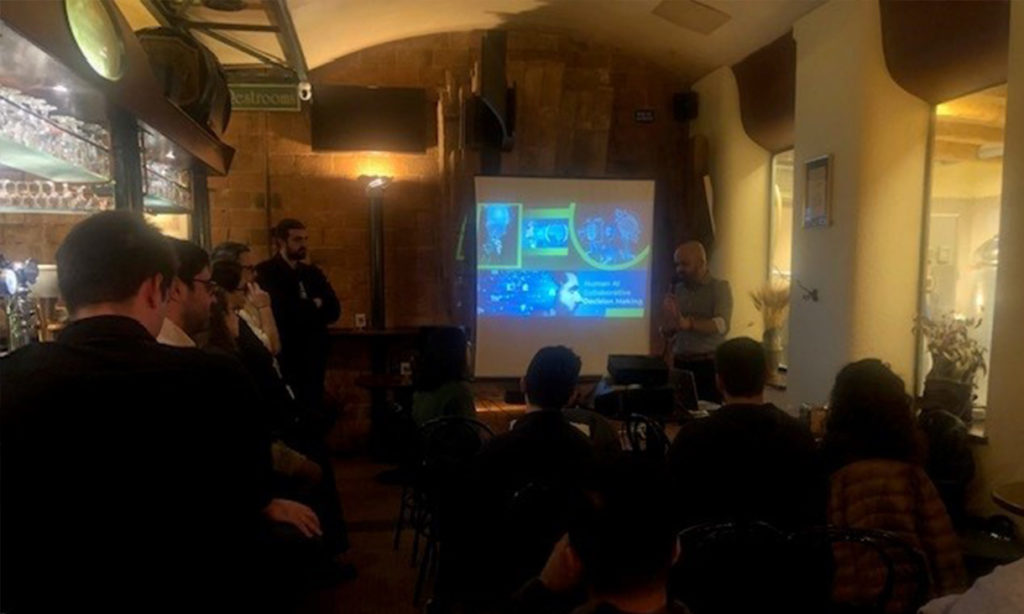
Day 4 (30 November 2023)
Transferable skills and training workshops
The morning was allocated to four parallel transferable skills training workshops, offering fellows the flexibility to choose according to their interests.
These workshops centred on key areas such as publishing and peer review, respectful research practices, responsible research and innovation, and open science. These sessions aimed to equip the fellows with essential skills and knowledge, enhancing their research capabilities and promoting ethical and responsible research practices.
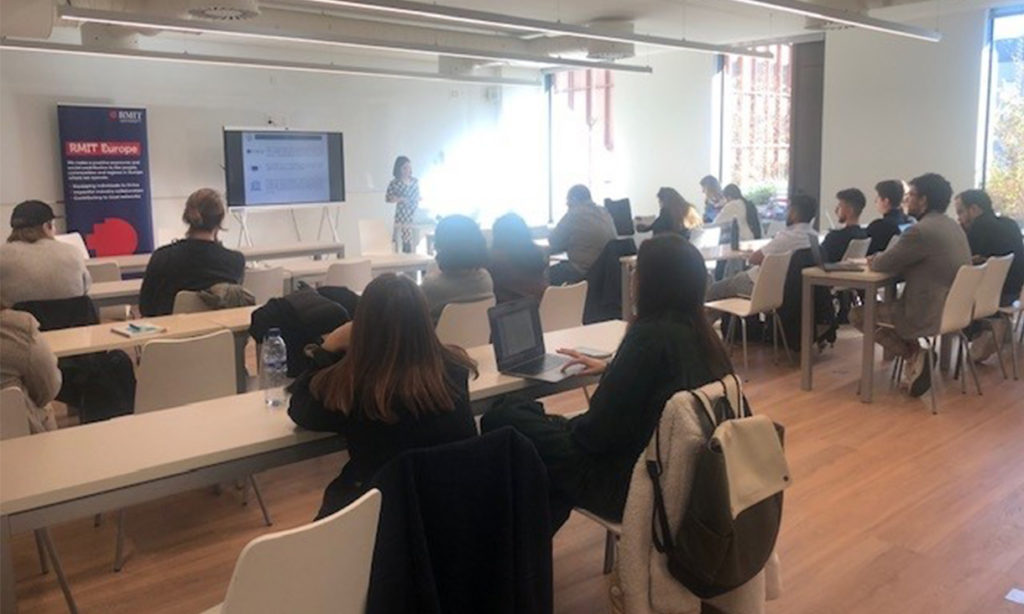
Site visit to Alba Synchrotron
The REDI fellows were given the opportunity to visit the Alba Synchrotron, a state-of-the-art third generation synchrotron light facility. This visit provided the fellows with insight into cutting-edge research infrastructure, allowing them to understand the practical applications of their theoretical knowledge.
The Alba Synchrotron is renowned for its advanced capabilities in producing synchrotron light, which is used to visualise the atomic structure of materials and analyse their properties. This visit not only broadened the fellows’ scientific horizons but also offered them a chance to see how such facilities contribute to advancements in various scientific fields.
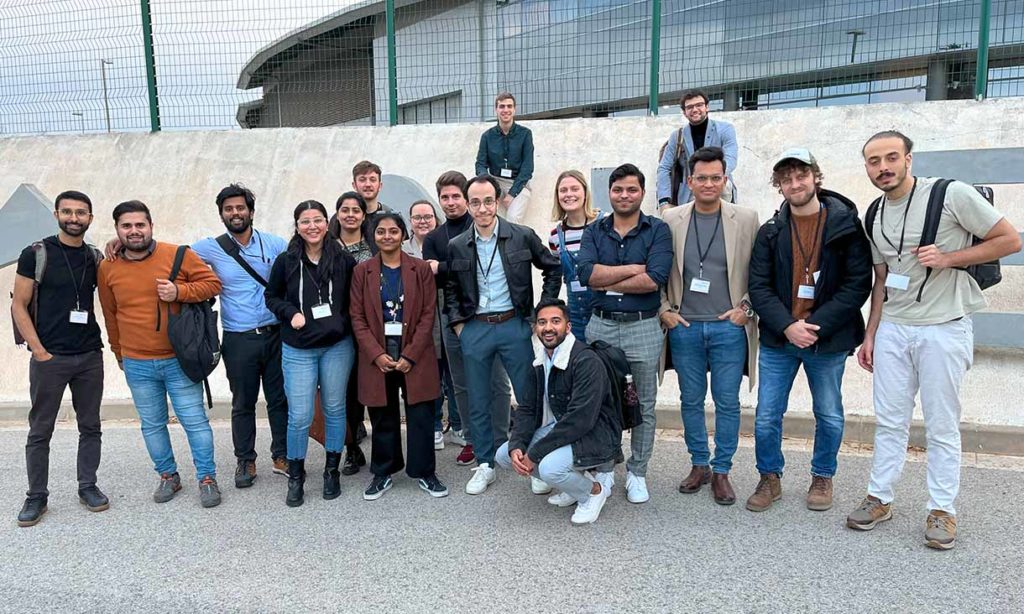
Site visit to Barcelona Design Hub
REDI fellows also had the opportunity to visit the Barcelona Design Hub, a leading public facility dedicated to recognising and promoting the creative industries. This hub serves as a centre for the dissemination of design heritage and culture. It provides a platform for creative minds to collaborate, innovate and contribute to the design industry.
The visit offered the fellows insight to the intersection of design and academia, and how such facilities foster creativity, innovation and cultural exchange in the design industry.
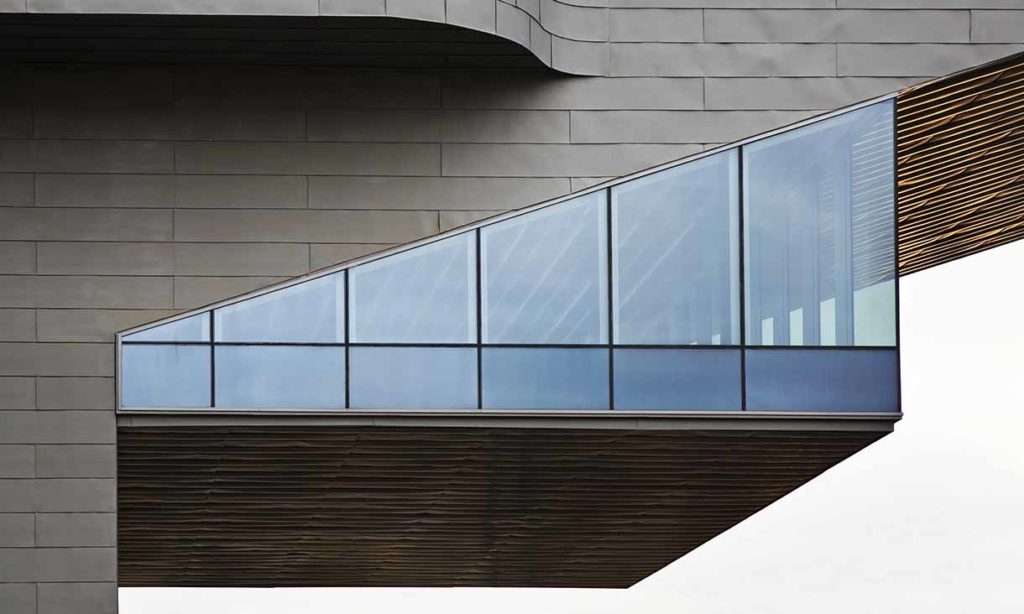
Day 5 (1 December 2023)
Site visit to the Palau de la Música
On Friday morning, one group of REDI fellows had the opportunity to visit the Palau de la Música Catalana, an architectural gem of Catalan Art Nouveau. This concert venue is the only one of its style to be listed as a World Heritage Site by UNESCO, marking it as a significant landmark in Catalonia’s cultural and social life.
Regrettably, due to unforeseen technical issues at the venue, the visit could not be fully completed. Despite this, the chance to explore such a unique and culturally significant site was an enriching experience for the fellows.
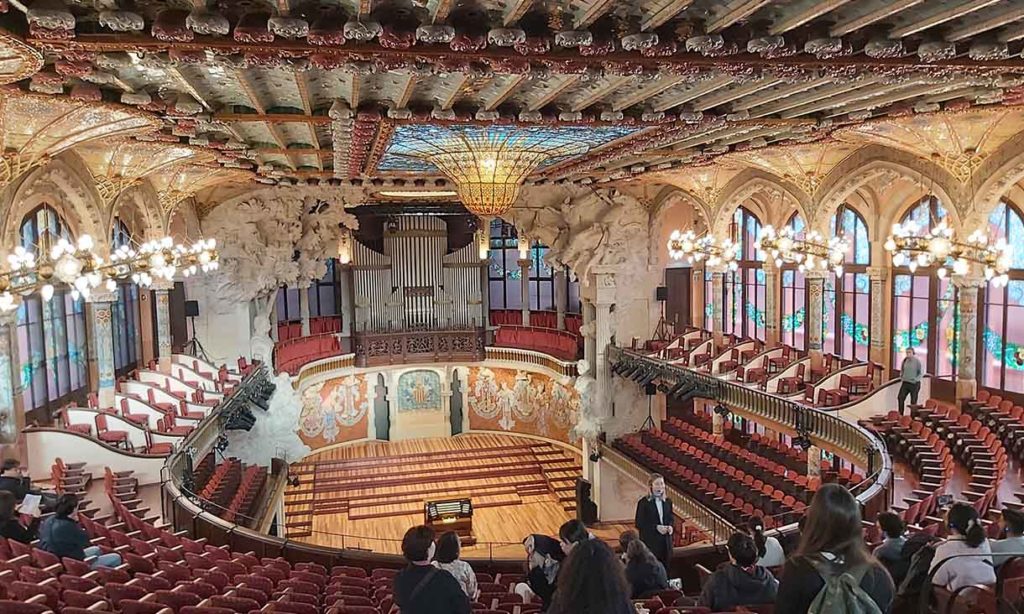
Site visit to the Barcelona Supercomputing Centre
The second group of REDI fellows visited the Barcelona Supercomputing Centre, Spain’s national hub for high-performance computing. This centre is renowned for its specialisation in high-performance computing (HPC), a field that is integral to advanced scientific research and data analysis. The centre is also responsible for managing MareNostrum, one of the most powerful supercomputers in Europe.
This visit provided the fellows with a unique insight into the world of supercomputing, allowing them to understand its role in facilitating complex computations and simulations.
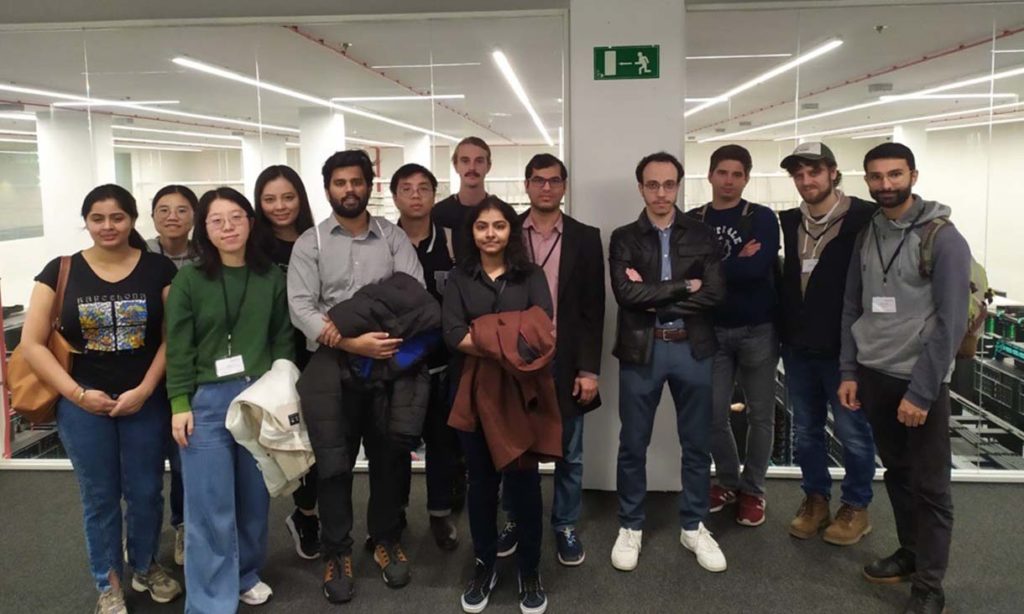
Closing remarks and farewell lunch
The five-day event culminated in a wrap-up and farewell session. This provided an opportunity for the REDI fellows and the REDI Management team to engage in a constructive dialogue about the event’s successes and areas for improvement.
This reflective discussion aimed to enhance the quality and effectiveness of future events, ensuring they continue to meet the needs and expectations of the fellows. It was a fitting close to an eventful week, marking the end of a productive and enriching experience for all participants.
